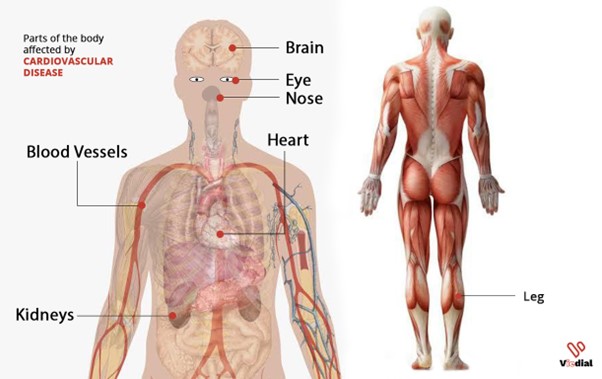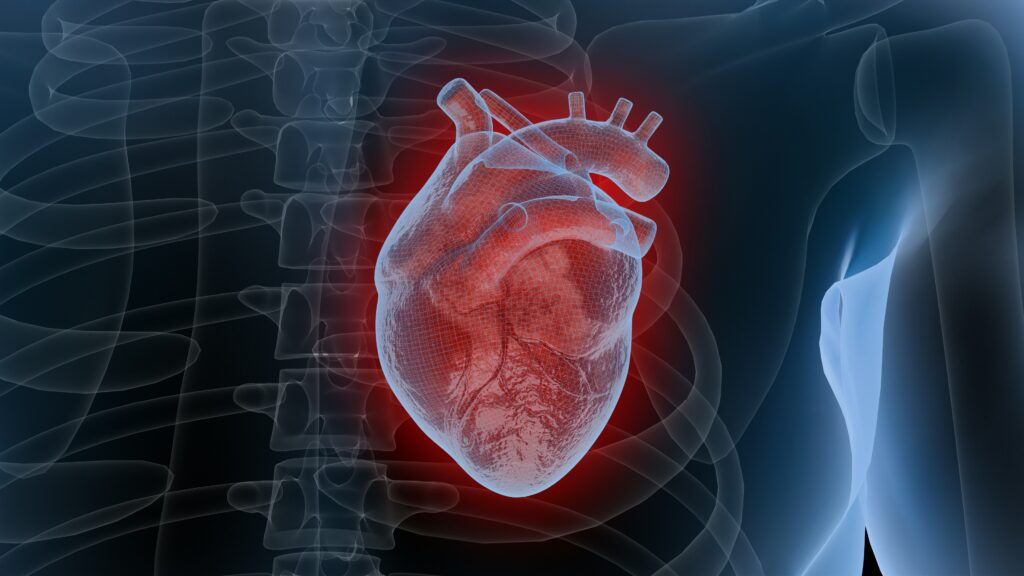Diseases Of the Heart and Blood Vessels
Cardiovascular disease is a broad term that describes conditions that affect the heart, the blood vessels (artery, veins, capillaries, etc.), and the system that is responsible for transporting blood from the heart to all parts of the body.
These diseases can be grouped into:
1. Heart diseases; 2. diseases of the big blood vessels; 3. diseases of the small blood vessels.
The heart, the blood vessels, and the system that transports blood from the heart to all parts of the body are very important organs. When they are not working well, they cause serious ill-health and complications that may result in death.
Therefore, it is important to protect and keep them healthy to work well.
When the heart, the blood vessels and the transport system for conveying blood from the heart to all parts of the body is not working well, it can affect the many parts of the body (see image below).

Common examples of diseases of the heart and blood vessels are; stroke, heart attacks, heart failure, abnormalities in how the heartbeats (arrhythmias), narrowing or hardening of the blood vessels that provide the heart and other parts of the body with oxygen and nutrients. Other types of diseases of the heart are (but not all);
- Congenital heart disease occurs in the womb and a person is born with it
- Rheumatic heart disease which occur when the body’s reaction to an infection or illness damages the heart
- Cardiomyopathies occur when the walls of the heart become either weak, swollen, or rigid.
References
- Cardiovascular Diseases. (retrieved on 2020, August 27). Retrieved from https://www.who.int/health-topics/cardiovascular-diseases/#tab=tab_1



